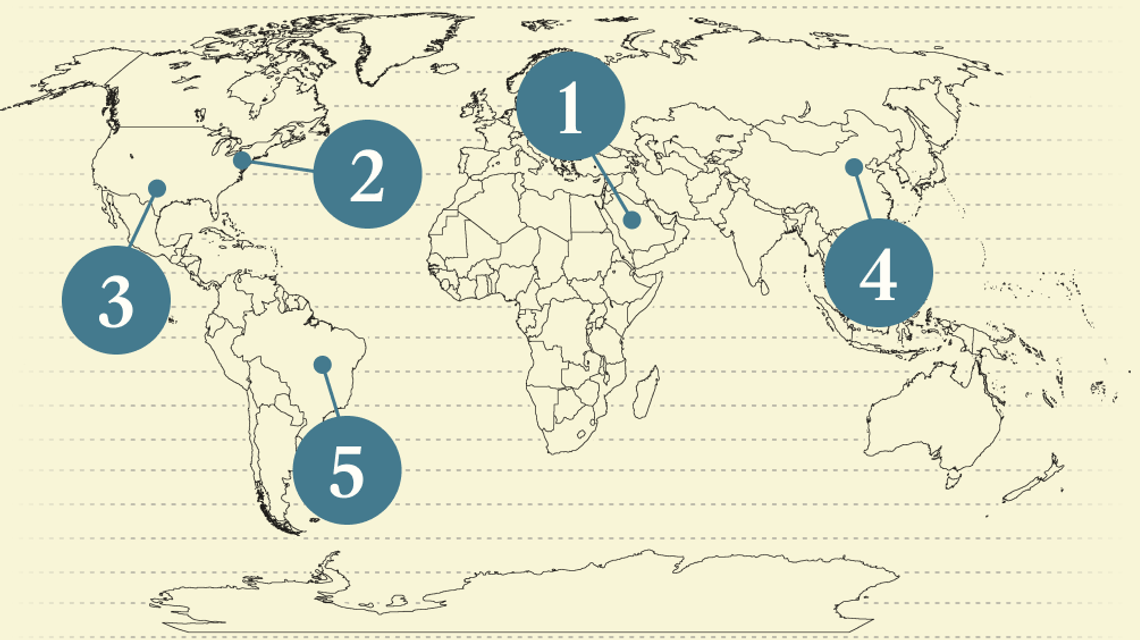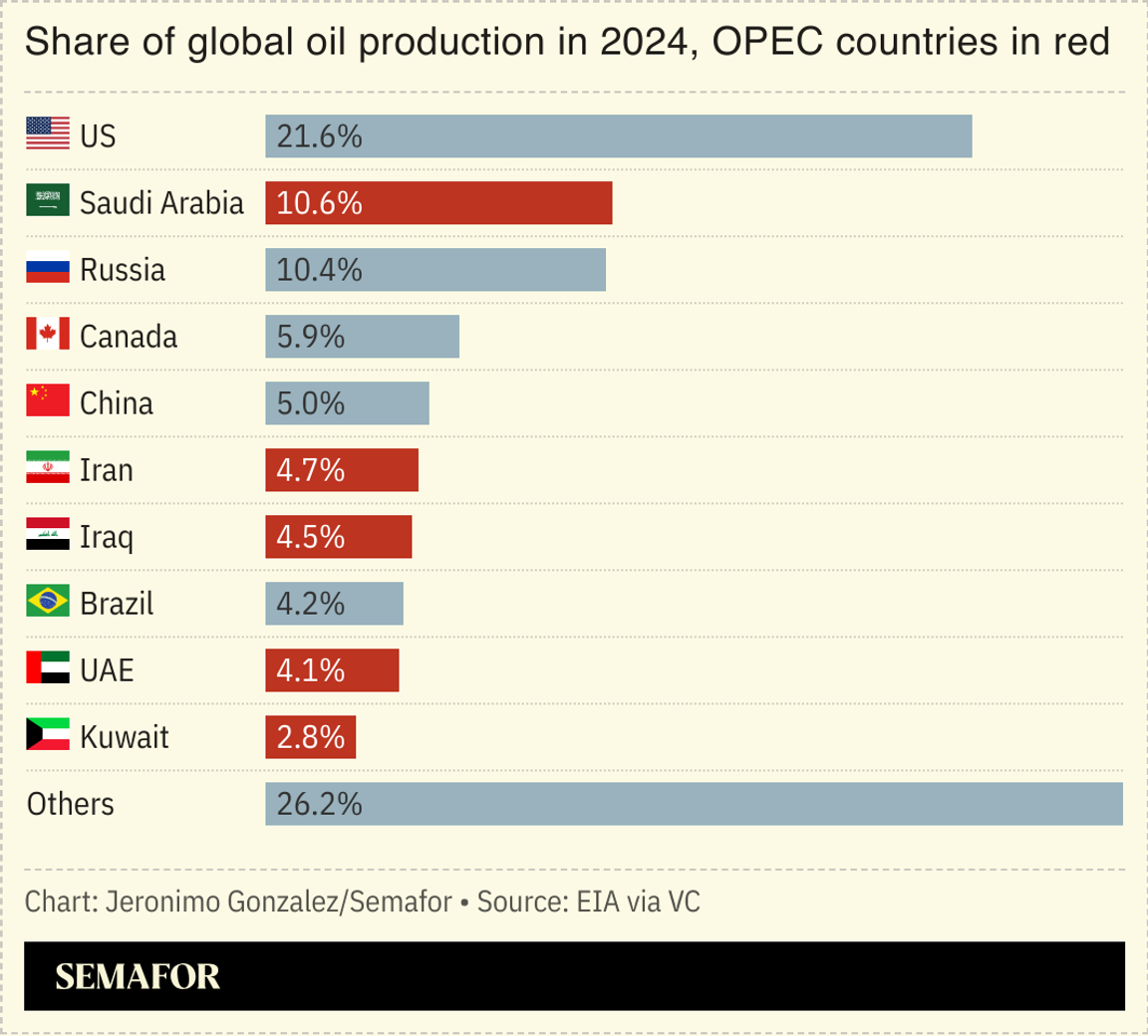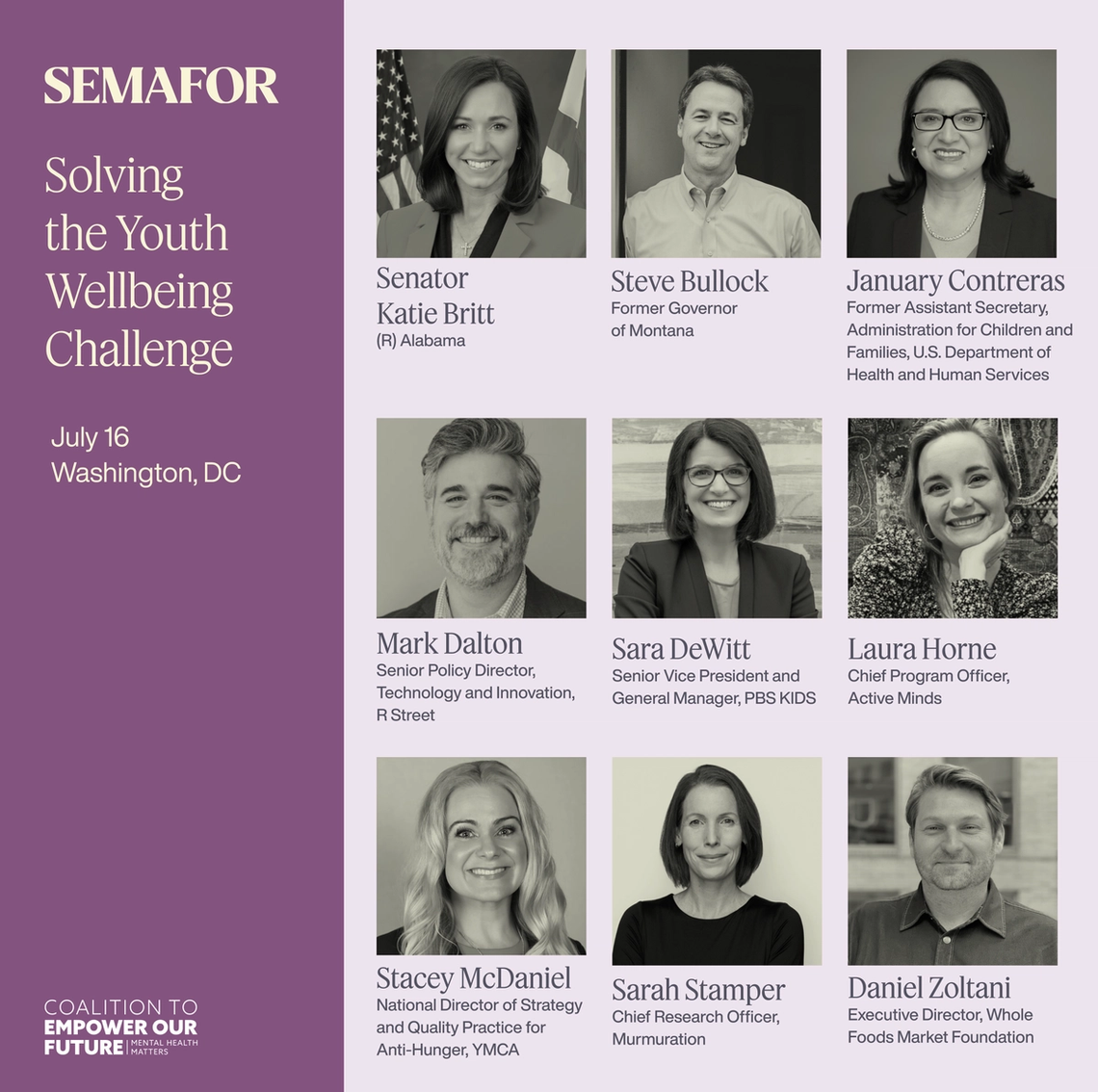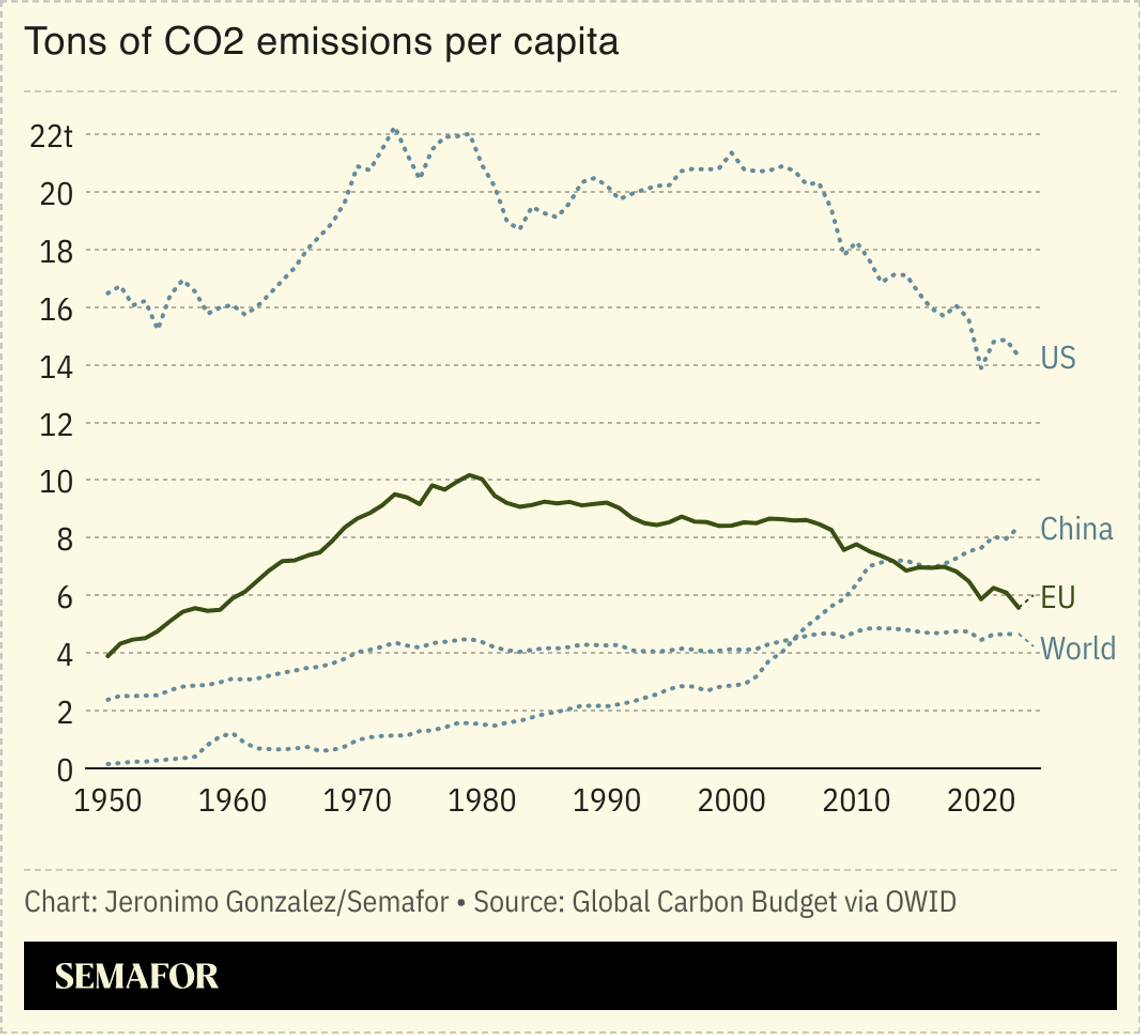| | In this edition, we look at OPEC’s decision to ramp up production again, the climate fallout of the ͏ ͏ ͏ ͏ ͏ ͏ |
| |  | Net Zero |  |
| |
|
 - OPEC ups output, again
- The climate cost of Trump
- What Texas shows
- China’s brutal heatwave
- A COP30 vocabulary
 Drill, baby, drill? Not so much. |
|
OPEC ups production, again |
 OPEC and its allies surprised markets — again — by agreeing to increase oil production by more than expected, despite prices at multi-year lows. The 548,000-barrel expansion signals the group is, officially, bullish on economic growth and the expected demand from the summer driving season. However, as analysts have noted, its decision is likely at least as strongly rooted in internal dynamics and strategy: It has sought to demolish the US shale industry in order to hold on to market share, while also seeking to maintain internal group adherence to production quotas. The downstream implications are significant, worldwide. For US President Donald Trump, increased production hopefully means lower gas prices, a helpful counterbalance to some economists’ expectations of higher inflation as a result of his tariffs. In the Gulf, current prices of about $65 a barrel are near most countries’ budget breakeven levels, with one notable exception: Saudi Arabia. The kingdom has a lot to lose if prices fall further, having already raised borrowing this year to fund a yawning deficit. |
|
Trump’s impact on emissions |
 The estimated amount, in tonnes, of carbon emissions that will be added to the atmosphere by 2030 as a result of US President Donald Trump’s climate policies, according to analysis by Carbon Brief. Trump this week signed an executive order directing federal agencies to further restrict access to tax credits for solar and wind projects, a follow-up to his July 4 signing of the One Big Beautiful Bill Act, which will cut taxes and increase spending but, crucially, waters down several Inflation Reduction Act provisions. The hefty increase — roughly equivalent to the annual output of Indonesia, Carbon Brief said — means that US greenhouse gas emissions will likely flatline; they need to drop 40% to meet the country’s Paris Agreement target. |
|
Climate fallout of Texas floods |
 Sergio Flores/Reuters Sergio Flores/ReutersFlooding in Texas left more than 100 people dead — a disaster that also encapsulates many of the biggest challenges surrounding climate change. For one, the deaths underline the growing frequency of extreme weather events, a trend that is also resulting in sharply higher home-insurance premiums, which were up 19% last year and 21% in 2023, and which in other states has led insurers to abandon markets entirely. The flooding also showcases the challenge of attribution: Experts so far are grappling with precisely how much to link what has happened in Texas to climate change, wary both of downplaying the risks as well as overplaying them — which can fuel climate skepticism, as Heatmap noted in a recent piece. Still, a litany of climate change-driven factors likely made the floods worse than they otherwise would have been: Increased temperatures like those recently experienced by the Gulf of Mexico can increase atmospheric moisture levels, resulting in heavy rain, and a recent drought meant unusually dry soil was unable to absorb the sudden increase in precipitation. |
|
The cost of China’s heatwave |
 Go Nakamura/Reuters Go Nakamura/ReutersSwaths of southern and eastern China sweltered under a brutal heatwave, imperiling key agricultural and industrial sectors. Authorities issued a yellow alert, warning that temperatures in some areas could reach as high as 40°C, or 104°F, this week. Along with the human impact, the economic fallout could be significant: One analyst told Reuters that because heat waves in China drive drought conditions, hydropower production in the southwest — which supplies many of the country’s manufacturing hubs — could be hit. Meanwhile, the Communist Party mouthpiece Global Times noted residents of Shandong in eastern China suffered power outages. As recently as 2022, the government had to ration power because of a shortfall in electricity driven by drought along the Yangtze river basin. |
|
The word Brazil hopes will define COP30 |
 A Portuguese word derived from Brazil’s indigenous Tupí-Guaraní language that refers to a group of people working together on a shared task — and the word Brazilian diplomats were keen to push at London Climate Action Week to promote their country’s hosting of this year’s COP30 climate summit. Foreign officials and business executives have voiced concern over the country’s insistence that it will organize the talks in Belém, worried that the area lacks the hotel capacity and travel infrastructure for such a large gathering, but Brazil has largely dismissed those questions, and instead urged prospective visitors heading over for COP30 to focus on mutirão. |
|
 Today’s youth are being raised at a critical technological crossroads, where emerging social media pressures are driving isolation and fueling rise a in depression and loneliness. While tools offer unprecedented connectivity, they also contribute to digital fatigue, fragmented social relationships, and a profound sense of isolation. Join Semafor at The Gallup Building to hear from Sen. Katie Britt, R-Ala.; Daniel Zoltani, Executive Director of the Whole Foods Market Foundation; Sara DeWitt, Senior Vice President and General Manager of PBS KIDS; Laura Horne, Chief Program Officer of Active Minds; Stacey McDaniel, National Director of Strategy and Quality Practice for Anti-Hunger of YMCA; and more, as we explore the complex drivers of youth wellbeing and the impact of this crisis on multiple future generations. July 16, 2025 | Washington, DC | RSVP |
|
 Fossil Fuels- US shale companies expect to drill far fewer wells this year than they had previously planned, according to a Federal Reserve Bank of Dallas survey.
FinancePolitics & Policy - The European Union proposed an interim target of cutting 90% of its carbon emissions by 2040, and notably wants to allow carbon credits from non-EU countries to help the bloc’s members reach that goal.
- The EU is, meanwhile, in a standoff with China, calling for Beijing to set more aggressive emissions-cutting targets ahead of a summit between the two sides scheduled for this month.
EVs- Tesla shares fell this week on investor concerns that Elon Musk’s plans to launch a new political party would further hit demand for the company’s EVs.
Personnel |
|
  Xavier Lorenzo/Getty Images Xavier Lorenzo/Getty ImagesThe media business is facing a crisis brought on by artificial intelligence. Since the dawn of the internet, people have had to click links to read articles. Now, they can just ask a chatbot what’s going on in the world, Semafor’s Reed Albergotti writes. But the advent of AI also brings an opportunity for entrepreneurship in local and niche publishing. AI moves us past the era of platforms and into something new: The technology will reduce almost every barrier to media creation, negating the need for a one-size-fits-all platform. |
|
|